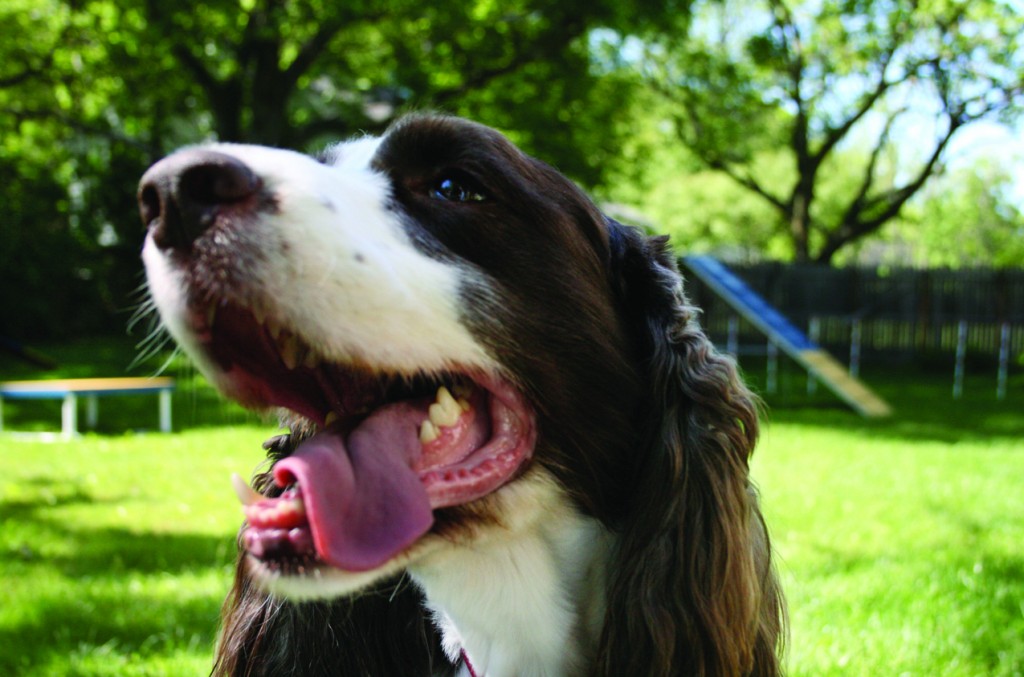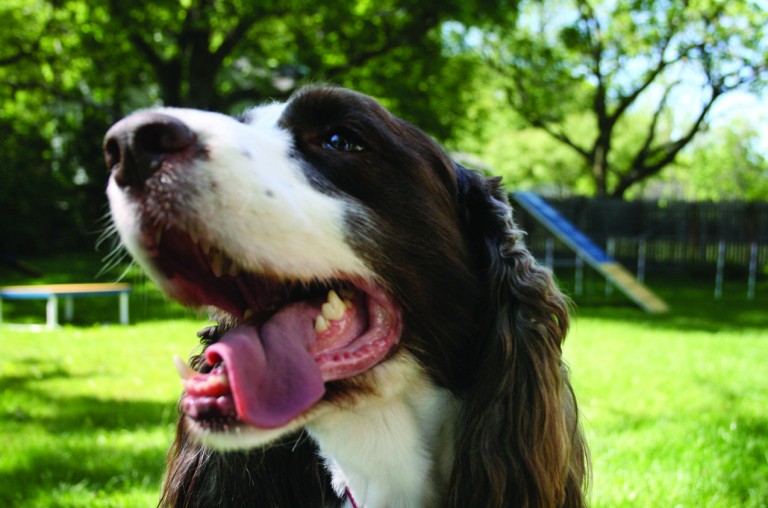
If the days of looking forward to sitting and petting your new puppy and the excited sloppy kisses that he or she would lavish on your cheek are over, you’ve probably realized that where puppy breath has somewhat disappeared, it has been replaced by bad breath.
You may run and hide from that once-precious pooch.
Many changes take place as a cute puppy becomes an adult dog. Many pet owners notice that some dogs gain weight, become sluggish and develop foul breath as they age. This bad breath not only can be a nuisance, but also it can be a health problem for otherwise healthy dogs.
“Halitosis,” is a condition commonly reported by dog owners. There are many different causes of doggie breath, but the primary contributor is a dental problem. Some pet parents are not aware that dogs need to have their teeth brushed just like us. Food particles can get lodged between teeth and eventually rot, causing an odor. What’s more, this food may cause bacteria to grow, which can decay teeth and lead to gum inflammation. If left untreated, plaque buildup and sore gums can progress to periodontal disease. According to veterinarians, plaque clings to the base of your dog’s teeth, causing the gums to recede and become inflamed. Once the gums are inflamed, they tend to leak blood serum, which blends with the plaque, increasing the amount of bacteria in the dog’s mouth. This appears as a yellowish coating on the dog’s teeth. Some dogs affected by serious plaque buildup will eat less.
Routinely brushing the dog’s teeth can minimize plaque buildup. Feeding hard kibble, which can further dislodge any other food, and offering chew toys and bones will also help keep plaque problems at bay. If plaque is a major problem, a veterinarian may suggest a thorough cleaning under sedation.
In addition to periodontal causes, bad breath may be a symptom of other serious conditions. Diseases of the kidneys, gastrointestinal disorders or even stomach cancer can cause bad breath. Diabetes and liver problems are also culprits in halitosis.
In other cases, foreign objects that become lodged in the teeth, including the pet’s own fur, can decompose and form a foul odor. The foreign objects also may irritate the skin and the gums. An infection that forms may produce an unpleasant odor.
A pet with bad breath should be examined by a veterinarian, unless it is obvious that it is the result of something the dog ate, including stool or spoiled garbage. The following methods also may keep bad breath at bay.
• Brush your dog’s teeth regularly. This helps prevent plaque buildup and will keep the gums healthy.
• Change the dog’s food. Some canned foods may produce foul breath, as can feeding a dog raw meat.
• Prevent access to garbage if your dog is a routine scrounger in the trash.
• If your dog isn’t eating much and looks frail, the breath may be a sign of a serious illness. Visit with a veterinarian promptly.

